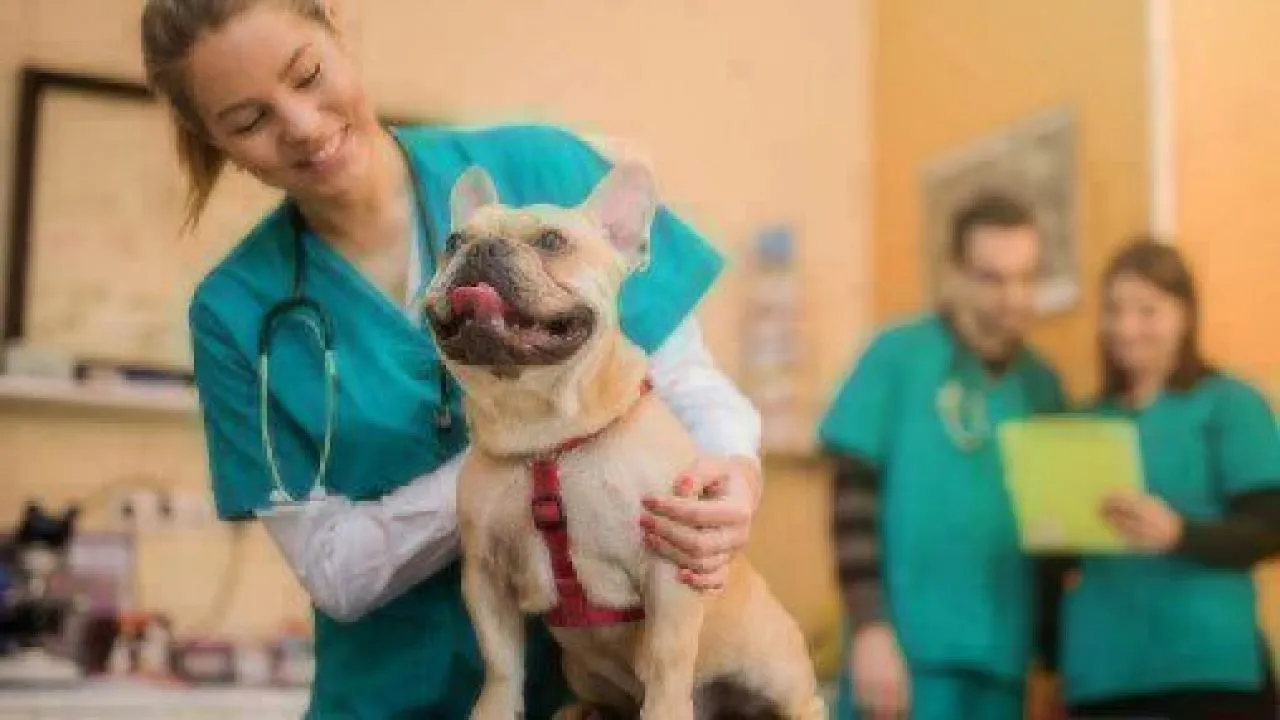Table of Contents
Intestinal parasites like hookworms and roundworms are common in puppies. Infections can be mild or severe depending on how many worms are present and how chronic the infection is. If left untreated, infections can be fatal due to complications like malnutrition and anemia. There are no vaccines available for hookworms or roundworms but there are monthly medications that can be given to prevent infection. Regular visits to your veterinarian can detect these parasites so they can be treated promptly.
Causes
Puppies most commonly contract parasites in utero or through nursing from their mothers. Parasite eggs can also be ingested through contaminated food, water, feces, or soil.
Clinical Signs and Symptoms
Hookworm infections may cause the following clinical signs:
- Malnourishment
- Poor appetite
- Pale mucus membranes
- Anemia
- Dark or “tarry” stools
- Diarrhea
- Coughing
Roundworm infections may cause the following clinical signs:
- Lethargy
- Poor appetite
- Abdominal pain and/or swelling
- Vomiting
- Diarrhea
- Visible worms in stool
- Coughing
Diagnosis and Treatment
If you suspect a parasitic infection in your puppy, a visit to your veterinarian is a good idea. Your veterinarian will ask questions about your dog’s history and check for abnormal physical exam findings, such as abdominal swelling or pale gums. They will collect a stool sample for testing. If parasite eggs are found during the test, your vet will start treatment.
To eliminate a mild infection, deworming medications will be prescribed to administer at home. You may need to provide your puppy with a bland diet if diarrhea is present. In severe cases, puppies may need hospitalization for fluid therapy and supportive care.
Management
If your puppy has been diagnosed with an intestinal parasite, such as roundworms or hookworms, the condition can be managed until treatment eliminates the infection. Check with your veterinarian about the best ways to manage this condition, but in general it may be beneficial to consider the following:
- Schedule and attend follow-up veterinary visits to ensure the deworming medication is effective.
- Keep infected puppies separated from other pets to reduce the risk of transmission while the worms are being treated.
- Promptly clean up feces from the yard.
- Thoroughly wash all food and water bowls with soapy water.
- Remove any fecal material from the puppy’s living environment, and wash any bedding that the puppy encountered.
- Gently clean the fur around the tail region to remove parasite eggs that may be stuck.
How to Prevent Hookworms and Roundworms
Keeping the home and yard clean and sanitary is important in preventing infection in all dogs. Monthly heartworm prevention typically prevents intestinal parasites and can be provided by your veterinarian to keep your dog healthy as well. In addition, because most roundworm and hookworm infections occur by transplacental transfer, meaning they are passed from mother to puppy during pregnancy, dogs should be tested and treated for parasitic infections before becoming pregnant.
Remember there is no vaccine for intestinal worms, so it’s up to you to keep pets safe and their environment as clean as you can manage. Should you see any of the clinical signs listed above, get them to a veterinarian for treatment. Watch young puppies closely for any changes in feeding and bathroom habits; quick treatment can save a dog’s life.
The content is not intended to be a substitute for professional veterinarian advice, diagnosis, or treatment. Always seek the advice of your veterinarian or other qualified health provider with any questions you may have regarding a medical diagnosis, condition, or treatment options.









